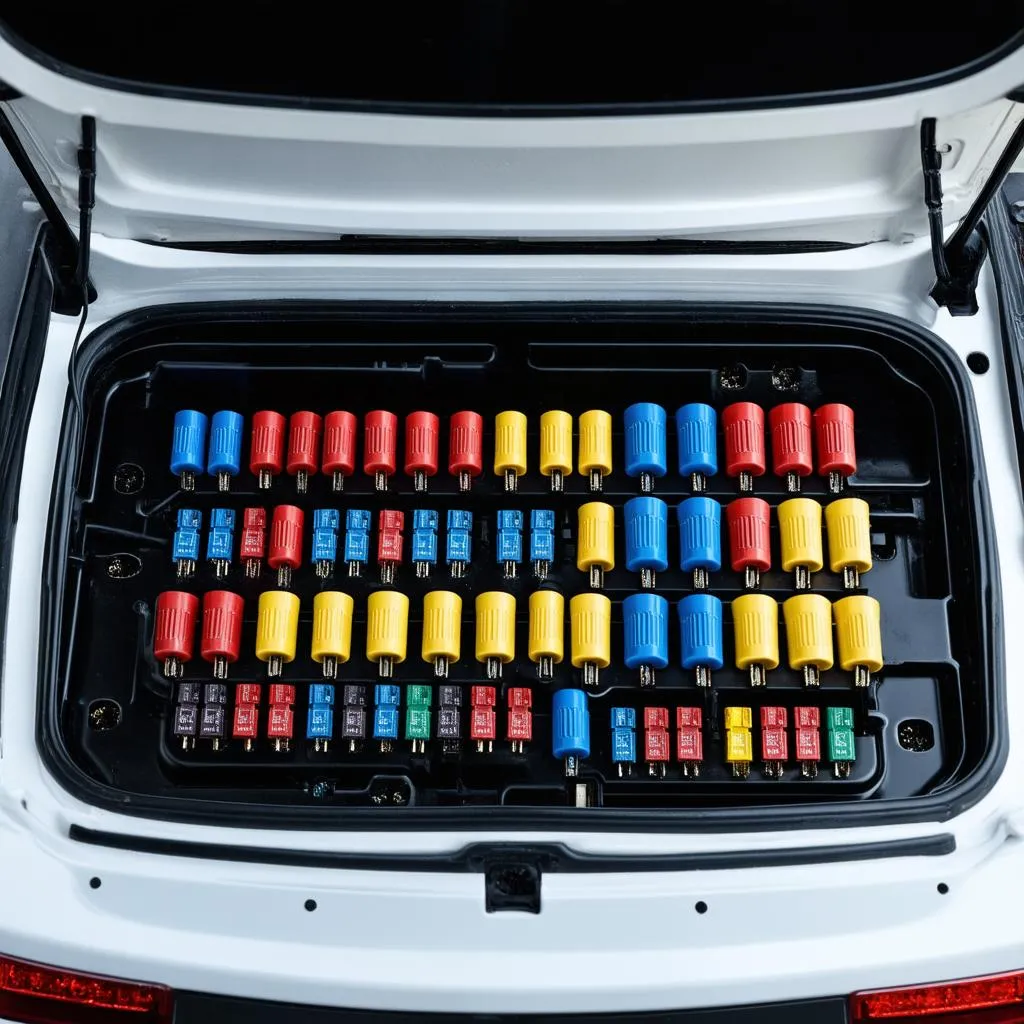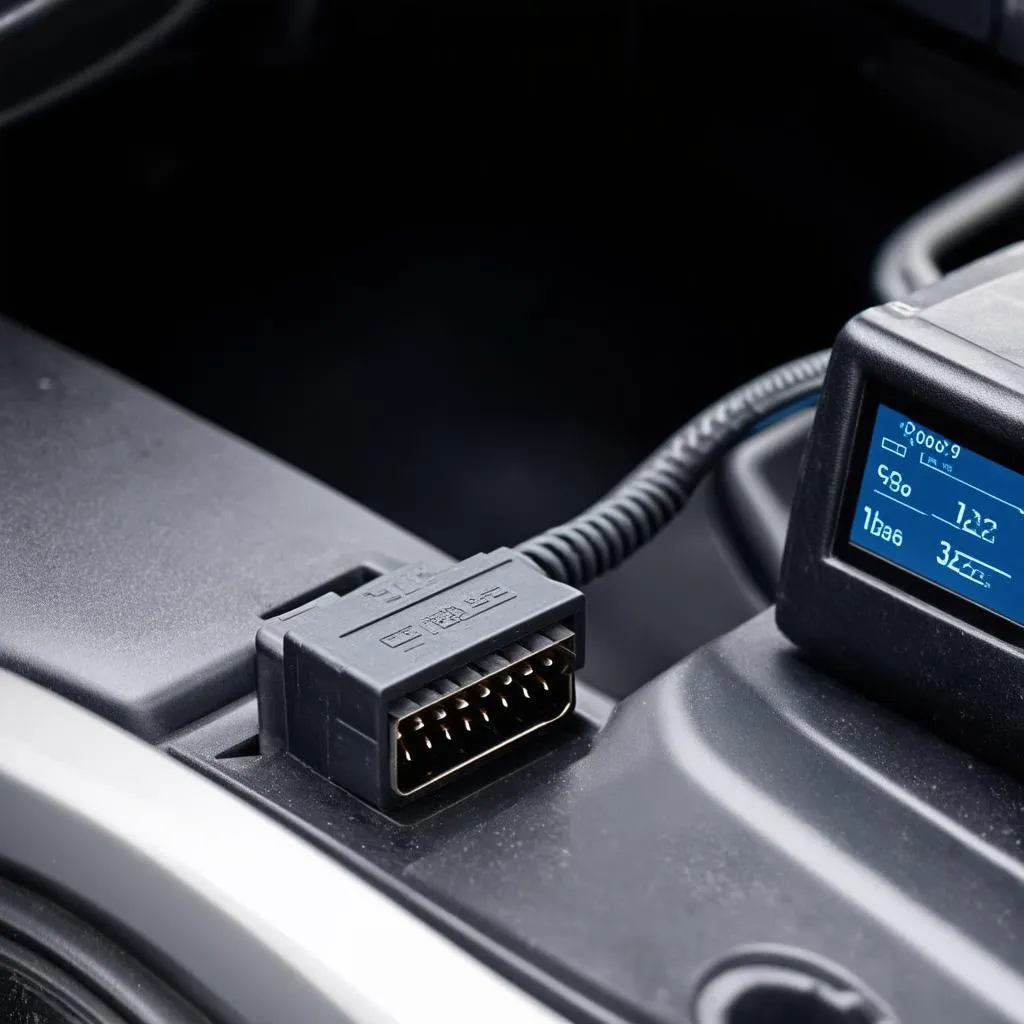Imagine this: You’re about to embark on a road trip, excited to explore the open road in your trusty 2000 Ford Explorer. You hop in, turn the key, and…nothing. Your check engine light is glaring at you, and you’re stranded. Before panic sets in, remember a little lifesaver tucked away: the OBD fuse. This seemingly insignificant component plays a crucial role in keeping your Explorer running smoothly.
What is the OBD Fuse and Why Should You Care?
The OBD, or On-Board Diagnostics, system is your vehicle’s internal communication network. It acts as your car’s central nervous system, relaying vital information about engine performance, emissions, and other critical functions. At the heart of this system lies the OBD fuse, a small but mighty gatekeeper that protects the entire network from electrical overloads.
Think of it like this: the OBD system is a bustling city, and the OBD fuse is the diligent traffic controller, ensuring a smooth flow of information. A blown fuse is like a traffic jam, bringing communication to a standstill and potentially leaving you stranded.
Why is My 2000 Ford Explorer OBD Fuse So Important?
The OBD fuse in your 2000 Ford Explorer is particularly important because it protects the diagnostic port, the gateway for mechanics and DIY enthusiasts to communicate with your vehicle’s computer. A blown OBD fuse can prevent you from using a code reader to diagnose engine problems, leaving you in the dark and potentially leading to costly repairs.
Troubleshooting Your 2000 Ford Explorer OBD Fuse: A Step-by-Step Guide
Experiencing electrical gremlins in your Explorer? Before you call for a tow truck, consider these common culprits and troubleshooting tips:
1. Blown Fuse: The Usual Suspect
The most common reason for OBD port failure is a blown fuse. This can happen due to a short circuit, a faulty component connected to the OBD circuit, or even using an incompatible device with your OBD port.
Solution:
- Locate the fuse box. In a 2000 Ford Explorer, it’s typically located under the dashboard on the driver’s side or in the engine compartment.
- Consult your owner’s manual to identify the correct fuse for the OBD port.
- Carefully remove the fuse and inspect it. A blown fuse will have a broken wire.
- If the fuse is blown, replace it with a new one of the same amperage.
2. Faulty Cigarette Lighter Fuse: A Hidden Connection
Believe it or not, the OBD port and cigarette lighter often share a fuse. So, if your cigarette lighter isn’t working either, there’s a good chance this is your culprit.
Solution:
- Locate the cigarette lighter fuse in your fuse box (refer to your owner’s manual).
- Inspect and replace the fuse if necessary.
3. Damaged OBD Port: A Less Likely Culprit
While less common, a damaged OBD port can also cause issues. Inspect the port for any bent or broken pins, debris, or signs of corrosion.
Solution:
- If there’s debris, carefully clean the port using compressed air or a cotton swab.
- For bent pins, you might be able to gently straighten them with a small tool. However, if the damage is severe, it’s best to consult a qualified mechanic.
Beyond the Technical: The OBD Fuse and Your Peace of Mind
Beyond its technical function, the OBD fuse represents something more profound: peace of mind. Knowing that this tiny component is working diligently to protect your vehicle’s vital systems can alleviate anxiety and instill confidence on the road.
As automotive expert, Dr. Emily Carter, author of “The Complete Car Care Guide,” puts it, “A well-maintained OBD system is like having a direct line to your car’s health. It empowers you to address issues proactively, saving you time, money, and unnecessary stress.”
FAQs About Your 2000 Ford Explorer OBD Fuse
Q: Can I drive my Ford Explorer with a blown OBD fuse?
A: While you can technically drive with a blown OBD fuse, it’s not recommended. Your engine may run poorly, and you won’t have access to crucial diagnostic information, potentially leading to further damage and costly repairs.
Q: How often should I check my OBD fuse?
A: It’s good practice to inspect your fuses (including the OBD fuse) at least twice a year or if you experience any electrical issues.
Seeking More Automotive Wisdom?
For more insights on car maintenance, troubleshooting tips, and expert advice, explore our other informative articles on techcarusa.com.
Need help with diagnostic tools or have a pressing car issue? Our team of automotive experts is just a WhatsApp message away at +84767531508. We’re here to help you navigate the road ahead with confidence!
 Fuse Box
Fuse Box
 OBD Port
OBD Port
Driving into the Future: Your 2000 Ford Explorer and Beyond
Remember, maintaining your 2000 Ford Explorer’s electrical system is essential for a safe and enjoyable driving experience. By understanding the role of the OBD fuse and following these troubleshooting tips, you can keep your Explorer running smoothly for miles to come.
We encourage you to share your own experiences, questions, and tips in the comments below. Let’s build a community of informed and empowered car owners!
